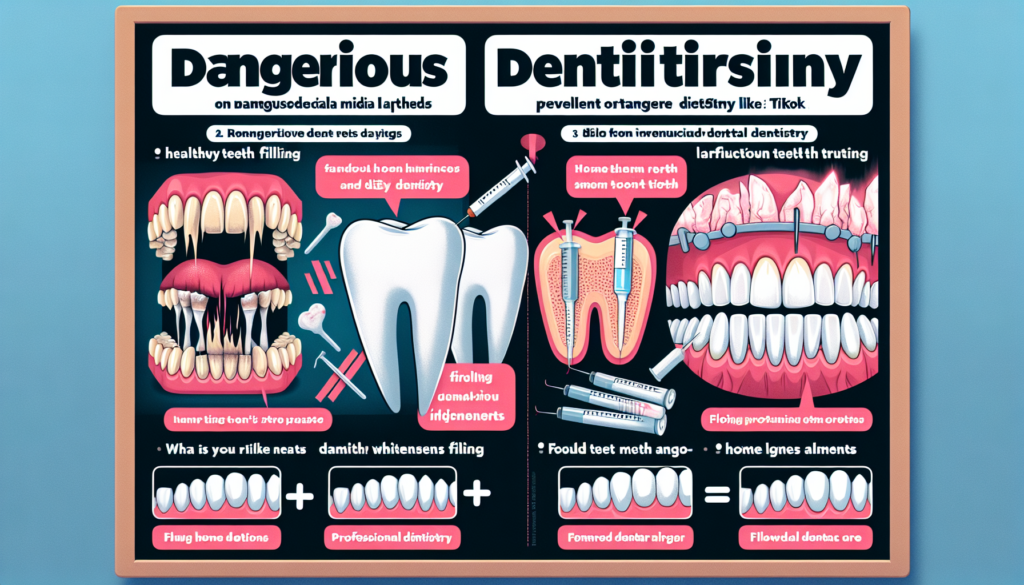Supervised Toothbrushing Programs and Their Impact on Children’s Dental Health
Just like small daily habits can transform your life, consistent dental habits can create a lifetime of confident, healthy smiles. Learn more in The Habit Method.
In England, supervised toothbrushing programs are making headlines as an effective public health measure to combat tooth decay in children. With increasing recognition of the role schools play in promoting children’s wellbeing, these initiatives are proving that small, structured actions—like daily supervised brushing—can have a significant impact on lifelong oral health and confidence.
What Are Supervised Toothbrushing Programs?
Supervised toothbrushing programs are organized initiatives, often implemented in early years settings and primary schools, where children brush their teeth daily under adult supervision. Each session provides children with a consistent environment in which to clean their teeth using fluoride toothpaste, ensuring proper technique and helping them establish routine hygiene habits early in life.
In practice, these programs operate within schools, nurseries, and community settings. Educators or trained staff provide fluoride toothpaste and soft-bristled toothbrushes suited for children. The brushing activity typically takes place after meals or snack times, reinforcing the connection between diet and oral care.
According to Public Health England, supervised toothbrushing programs are especially effective when started at an early age—between 3 and 5 years—when children are still developing fine motor skills and need guidance to brush properly.
Why Tooth Decay Is a Major Concern Among Children
Tooth decay remains one of the most common preventable diseases in children both in England and worldwide. The National Health Service (NHS) reports that it is the leading cause of hospital admissions among children aged 6–10 years in the UK. Thousands of children each year require treatment under general anaesthetic to remove decayed teeth—an entirely avoidable outcome with proper preventive care.
The causes are multifactorial: frequent consumption of sugary foods and drinks, inconsistent brushing habits, and limited access to dental services in some communities. The early years are also critical for developing routine behaviours; once established, these behaviours shape oral health outcomes into adolescence and adulthood.
Developing sound brushing habits early doesn’t just keep cavities away—it also nurtures self-discipline, independence, and a sense of responsibility for personal health. As the saying goes, “A small habit practiced daily can produce lifelong results.”
Benefits of Supervised Toothbrushing in Schools
Several long-term studies have shown that supervised brushing programs deliver measurable improvements in children’s dental health.
- Effective use of fluoride toothpaste: Fluoride strengthens tooth enamel and makes it more resistant to decay. When applied daily under supervision, it can significantly reduce cavity rates. — National Institute for Health and Care Excellence (NICE)
- Support for busy families: Not all households can supervise brushing twice a day, especially in large or lower-income families. School-based routines help bridge that gap.
- Reducing health inequalities: These programs support children from disadvantaged backgrounds who may not have access to consistent oral hygiene products or parental guidance.
- Educational reinforcement: Teachers use these moments to reinforce topics like nutrition and hygiene, supporting overall health education goals.
Collectively, supervised brushing improves oral cleanliness, reduces plaque accumulation, and positively influences children’s attitudes toward self-care. — Cochrane Oral Health Group
Government-Backed Initiatives in England
The UK government has recognized supervised toothbrushing as a cornerstone of its oral health improvement strategy. In 2024, England expanded its school oral health initiatives through increased funding for public health partnerships and local authority programs targeting communities with the highest rates of dental decay.
As stated on the UK Government website, these programs aim to reach more early years and primary school settings across England by collaborating with educational institutions, health visitors, and dental teams. They are also aligned with the National Oral Health Improvement Plan and support broader goals to reduce child dental inequalities.
Public health organizations such as the Oral Health Foundation and NHS England are deeply involved in the delivery and evaluation of these initiatives. Their combined efforts underline that preventive oral health care is not simply a clinical intervention—it’s a community responsibility.
Creating Lifelong Healthy Dental Habits
Supervised toothbrushing isn’t just about preventing immediate decay; it’s about teaching children the value of consistent, mindful care for their bodies. When brushing becomes a normal part of a child’s daily routine, those habits persist into adulthood.
Role of Schools and Communities
Schools and nurseries serve as ideal environments to foster these routines. Familiar settings help children associate toothbrushing with positive feelings of community and self-care. Involving teachers, school nurses, and dental professionals ensures continuity between formal education and health literacy.
Tips for Parents to Maintain Brushing Habits at Home
- Brush twice daily—once before bed and once after breakfast.
- Use a pea-sized amount of fluoride toothpaste (1350–1500 ppm for children over 3).
- Supervise brushing until at least age 7 to ensure effective cleaning.
- Use positive reinforcement—praise or reward consistent participation.
- Make brushing fun with songs, timers, or visual charts to keep children engaged.
Healthy brushing habits at home, supported by school-based programs, create a double layer of protection—reinforcing skill and motivation in every environment.
The Future of Children’s Oral Health in the UK
The expansion of supervised toothbrushing programs forms part of the UK’s broader approach to reducing health disparities and improving population wellbeing. With continued investment, these initiatives could soon reach every school in England, particularly those in high-need areas. Over time, these efforts are expected to deliver significant health and economic benefits, reducing the National Health Service’s burden related to emergency dental care and hospital admissions.
Prevention-based approaches not only save healthcare costs but also build brighter, healthier futures for children—because protecting a child’s smile protects their confidence, social wellbeing, and overall quality of life.
Frequently Asked Questions
1. What age should children start supervised toothbrushing?
Children can begin brushing their teeth as soon as the first tooth appears, usually around six months. Supervision is essential until they can brush effectively on their own, typically by age seven.
2. Why is fluoride toothpaste recommended for kids?
Fluoride helps strengthen tooth enamel and prevent decay. For children over three, toothpaste with 1350–1500 ppm fluoride is effective and safe when used in a pea-sized amount.
3. Do supervised toothbrushing programs replace home brushing?
No. School brushing complements—rather than replaces—regular home routines. Brushing twice daily at home remains crucial for long-term oral health.
4. Are these programs safe and hygienic?
Yes. Toothbrushes are labeled individually for each child and stored hygienically. Supervisors follow strict infection control guidelines in line with public health standards.
5. What are the biggest benefits of school oral health initiatives in England?
They improve dental health in children, reduce inequalities, build self-care habits, and lower the rate of decay-related hospital visits—all while supporting family wellbeing and educational goals.
Conclusion
The success of supervised toothbrushing programs highlights a simple yet powerful truth: daily habits can shape lifelong health. As communities, educators, and dental professionals continue to work together, we can ensure every child has the opportunity for a strong, healthy smile—one brush at a time.
Healthy habits build brighter futures. Learn more about the power of consistency and everyday improvement in The Habit Method.
Post Disclaimer
DentalUp is for educational purposes only and cannot accept personal dental information such as x-rays, photos, or treatment details. See full disclaimer here.





